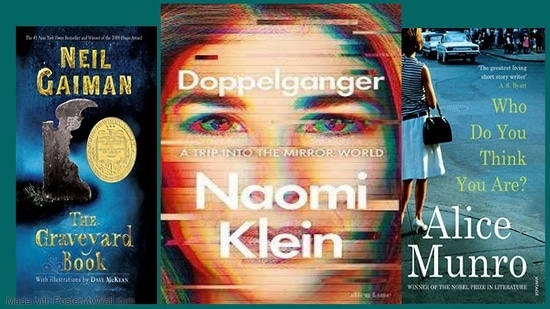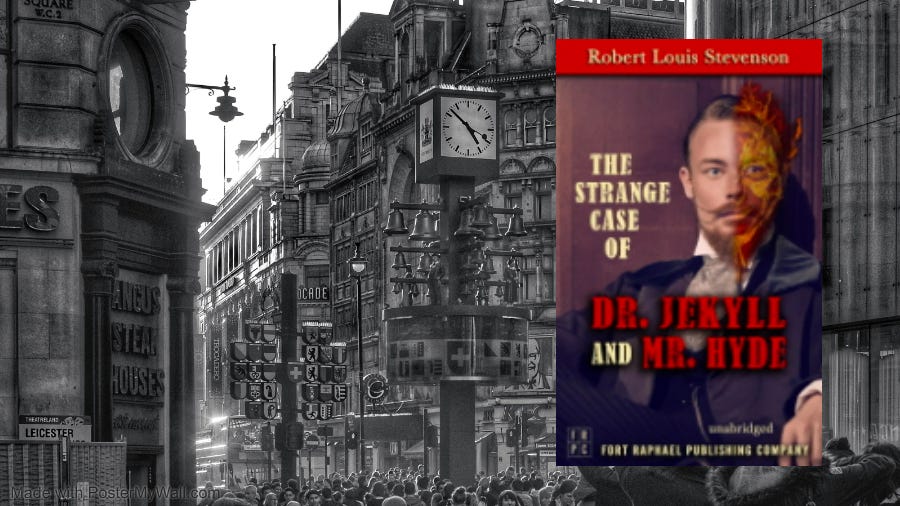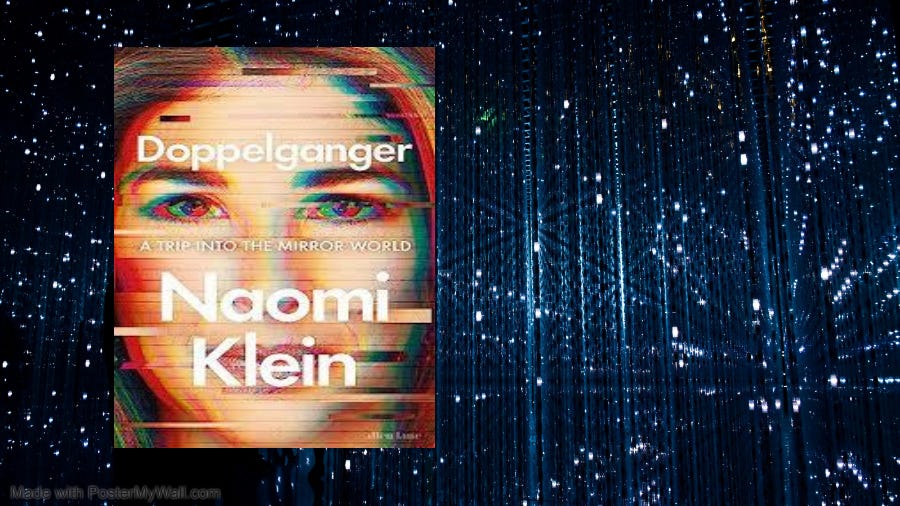Book Box | Doppelgangers and dissonance: When Neil Gaiman and Alice Munro disappoint
Find answers to a readers dilemma in three different books — an award-winning non-fiction, a classic and a sci-fi police procedural
Dear Reader,

The last fortnight has been depressing in book news. Two beloved writers, Neil Gaiman and Alice Munro have been in the news for upsetting reasons — Gaiman faces accusations of sexual assault. Alice Munro, Nobel laureate, who passed away in May this year, has been accused by her daughter Andrea, of continuing to stay on with her husband, the man who was step-father to Andrea and who assaulted her when she was nine years old.
“How do I tell my daughter — we’ve been reading Coraline by Neil Gaiman and enjoying it — how can I tell her, what words do I use?” says a reader friend. “I can never read Alice Munro again”, says another. “Can’t we separate the art and the artist?” says someone else.
The morning of the news, I am walking on Juhu beach. The Arabian Sea is dark grey, the waves high in this monsoon season, and the wind whooshes by me as I listen to Neil Gaiman on BBC’s Desert Island podcast. The author tells endearing stories about the books he wrote for his children, describes a favourite Gilbert and Sullivan opera song, and talks about his musician wife Amanda. Later, the same day, I heard him on Masterclass talking about how to write a story. I feel as if I know this amazing, warm, brilliant man. And then this shocking news.
It takes me back to my teenage years, to my faded yellowing copy of The Strange Case of Dr Jekyll and Mr Hyde. By day, Dr Jekyll lives an upright life in London, caring for his patients. At night, he transforms into Mr Hyde, frequenting depraved dens of iniquity, and committing the foulest acts. It seemed a curious story to teenage me. Today it feels astoundingly applicable.

I think about Doppelganger by Naomi Klein, a book that has been in my head for weeks. Doppelganger is German for ‘double’ though the word means more than this literal translation. Your doppelganger could be a completely unrelated person who looks like you, it could also carry a sinister connotation of an evil spirit double.
In a brilliant book that won this year’s Women’s Prize for nonfiction, author Naomi Klein uses these multiple meanings of doppelganger for insights into our fractured lives.
The book begins when Naomi starts getting haunted by her doppelganger, who is a real-life person. Everywhere Naomi Klein goes, she gets mistaken for another Naomi — Naomi Wolf. Both Naomi’s are activist writers.
So far so good. But what makes this experience disturbing, is that the other Naomi is a darker version — her academic research is proved wrong, and she is denied her PhD degree. She becomes frantic and turns into a conspiracy theorist. And this is the double that Naomi Klein is getting mistaken for, both online and offline.
Klein uses this as a starting point to explore dual identities. Human beings have always had different versions of themselves. In the business school where I teach, I am a sari-clad professor. At home, I am a shabbily dressed mom of three. With friends, I am somewhere in between.

In the digital world, it’s a whole other story, says Klein. The divide between different versions of ourselves can become dangerously deep as we create digital identities. I open my phone and look through my Instagram account. Everywhere are pictures where I pose with other writers and readers. It’s neat and nice and filtered to highlight Sonya, the writer and reader — leaving out all the messy bits of my life. Everyone does this I know, but I can’t help being warned by Klein. Is this differentiation normal, or is it one step on a slippery slope to creating a glitzy self, highlighting everything that is socially applauded, even as the ‘real’ me turns into a shadow version? Feeling disoriented, I do something drastic — I delete the Instagram app from my phone.
Years ago, I remember reading the allegations of sexual abuse against sci-fi writer Arthur C Clarke. They were horrifying, but they seemed to belong to some distant universe. These revelations, however, have thrown my carefully constructed world of writer heroes vs the others, into disarray. Perhaps the answer lies not in individual extreme cases but in the bigger picture.
I turn to the sci-fi novel The City and the City, where this Jekyll and Hyde, this doppelganger duality, comes to larger than life. It’s one of the many reasons I love sci-fi, in the way it blows up reality to reveal our absurdities. I am quickly drawn into the story of two cities in the same geographical location- some ‘crosshatched’ streets even have sections that belong to one and then to the other. One city is old and shabby, the second more glitzy. The citizens of the two cities have been trained to ignore each other, to ‘unsee’ each other. But then there’s a murder, and things get complicated. The murder investigation goes slow and normally this would make me impatient, but this time I am enjoying the slow burn, drinking in the world-building.
Like the two cities in this book, our fractured selves only manifest together, when a crime is committed. Suddenly, we are confronted by the terrible dissonance we have trained ourselves to ignore for so long.
What about you, dear Reader? Do you feel you can separate the two selves — just as you might separate art from an artist? Have you ever had a doppelganger, someone who looks and feels like you, someone spookily reminiscent of you? Or a second self that you create and curate online that may be significantly different from your ‘real’ self?
Until next week, happy reading.
Sonya Dutta Choudhury is a Mumbai-based journalist and the founder of Sonya’s Book Box, a bespoke book service. Each week, she brings you specially curated books to give you an immersive understanding of people and places. If you have any reading recommendations or suggestions, write to her at sonyasbookbox@gmail.com
The views expressed are personal
Books referred to in this edition of Book Box
Dr. Jekyll and Mr. Hyde by R. L Stevenson
Doppelganger by Naomi Klein
The City and the City by China Mievelle
All Access.
One Subscription.
Get 360° coverage—from daily headlines
to 100 year archives.



HT App & Website







